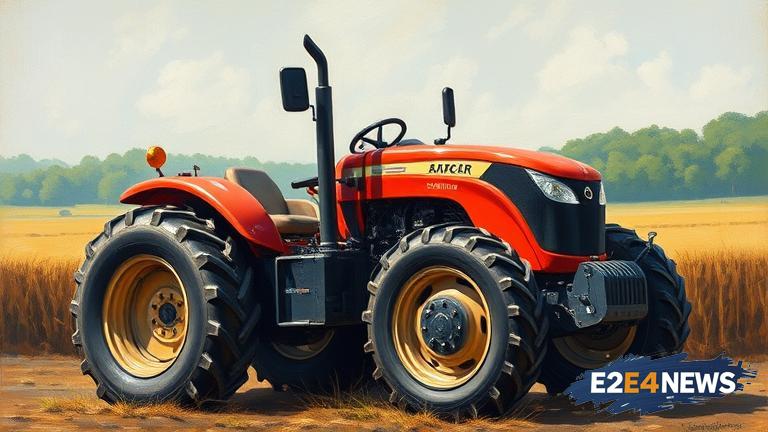The ongoing trade tensions and increasing tariffs are having a significant impact on the tractor manufacturing industry. With tariffs making imported components more expensive, domestic manufacturers are facing stiff competition from foreign players. The Indian government’s decision to impose tariffs on imported tractors and components has led to a surge in prices, making it difficult for local manufacturers to compete. As a result, many tractor manufacturers are struggling to maintain their market share and profitability. The tariffs have also led to a decrease in demand, as farmers and other end-users are opting for cheaper alternatives. The industry is witnessing a shift towards more affordable and efficient tractors, which is further intensifying the competition. Moreover, the tariffs have disrupted the supply chain, leading to delays and increased costs for manufacturers. The situation is expected to worsen if the trade tensions escalate, and the industry is bracing for a potential downturn. Despite the challenges, some manufacturers are optimistic about the future and are investing in research and development to improve their products and stay competitive. The government is also taking steps to support the industry, such as providing subsidies and incentives for domestic manufacturers. However, the effectiveness of these measures remains to be seen. The tractor manufacturing industry is a significant contributor to the country’s economy, and the government needs to strike a balance between protecting domestic manufacturers and promoting free trade. The industry is also facing challenges from other sectors, such as the automotive industry, which is increasingly using similar technologies and components. The rise of electric and autonomous tractors is also expected to disrupt the industry, and manufacturers need to adapt to these changes to stay relevant. In addition, the industry is facing environmental and social challenges, such as reducing emissions and promoting sustainable agriculture practices. The tariffs have also led to a decrease in exports, as foreign buyers are opting for cheaper alternatives. The industry is expected to undergo significant changes in the coming years, and manufacturers need to be prepared to adapt to these changes. The government needs to provide a stable and supportive policy environment to help the industry navigate these challenges. The tractor manufacturing industry is a critical sector for the country’s food security and economic growth, and it is essential to ensure its long-term sustainability. The industry is also facing challenges from digital disruption, and manufacturers need to invest in digital technologies to stay competitive. The tariffs have also led to a decrease in investment, as investors are opting for more stable and predictable markets. The industry is expected to witness significant consolidation in the coming years, as smaller manufacturers struggle to compete with larger players. The government needs to provide support to smaller manufacturers to help them stay competitive and promote innovation in the industry.
